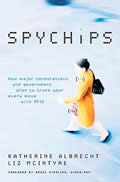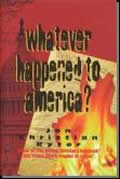Other
Ryter
Articles:
The Two Kerry's:
War Hero or
Traitor?
"Men in Black" The Cult of The Judges
PAPAL
JIHAD
PART 1 of 2
By Jon Christian Ryter
September 20, 2006
NewsWithViews.com
On September 12, 2006 German-born Pope Benedict XVI gave an address at Regensburg University in Bonn entitled "Faith, Reason and the University: Memories and Reflections." In 1959 Benedict�then Father Joseph Ratzinger�arrived at Regensburg as an instructor. In his 2006 speech, Benedict said that in the face of radical skepticism it is still necessary and reasonable to raise the question of God through the use of reason and to do so in the context of the tradition of Christian faith. He added, "I was reminded of this recently when I read...a dialogue [that took place] probably in 1391 [AD] in the winter barracks near Ankara [Turkey] by the erudite Byzantine Emperor Manuel II Paleologus and an educated Persian on the subject of Christianity and Islam�and the truth of both.
"In the seventh conversation," Pope Benedict continued, "the emperor touches on the theme of the Holy War. Without descending to details, such as the difference in treatment accorded to those who have the "Book" and the "infidels," he addresses his interlocutor with a startling brusqueness on the central question about the relationship between religion and violence in general, saying: 'Show me just what Muhammad brought that was new, and there you will find things only evil and inhuman, such as his command to spread by the sword the faith he preached.' The emperor, after having expressed himself so forcefully, goes on to explain in detail the reasons why the spreading of faith through violence is something unreasonable. Violence is incompatible with the nature of God and the nature of the soul. 'God,' Emperor Manuel said, 'is not pleased by blood�and not acting reasonably is contrary to God's nature. Faith is born of the soul, not the body. Whoever would lead someone to faith needs the ability to speak well and to reason properly, without violence or threats.'"
Within two days, Pope Benedict's reiteration of a 615-year old discussion between a Christian emperor and an educated Persian shiekh exploded into an anti-Western, anti-Christian Islamic tirade that threatened to spark the type of violence that ignited the European rioting in January, 2006 over 12 cartoons of the prophet Muhammad that appeared in the Danish newspaper, Jyllands-Posten after the illustrator hired by Kare Bluitgen, the author of the children's book, "The Koran and the Life of the Prophet Muhammad" agreed to produce 10 illustrations for the book only if he was provided anonymity (out of fear of retaliation by Islamic extremists). The Danish newspaper challenged the book publisher's right to self-censorship out of fear of extremists. To show that freedom of the press could not kowtow to fear, Jylland-Posten printed a dozen drawings purported to be Muhammad. One of them depicted what was supposedly the Prophet wearing a turban shaped like a bomb.
Before the protest petered out, angry Muslim mobs in Damascus, Syria and Beirut, Lebanon stormed the Norwegian embassies and set them ablaze. Muslim extremists throughout Europe rioted in the streets, torching hundreds of vehicles. Before the fires subsided, eight people died�over a cartoon caricature. This time around, one person has already died. On Sept. 17, 2006 two Muslim extremists in Mogadishu, Somalia shot a 65-year old Catholic nun, Sister Leonella [Rosa] Sgorbati, four times in the back as she was entering the Austrian-run women's and children's hospital where she worked. The killing was to protest the Pope's address at the university in Bonn. Killed as well was her Somalian bodyguard. One of the two killers has been apprehended and is in custody. Somalian authorities assured the Italian government that the search continues for the other shooter.
Memories of the cartoon jihad were still fresh enough in the minds of the Europeans�particularly those in Bonn, Germany�fresh enough that they could envision the streets of Bonn�and Regensburg University�in flames. Out of fear of a Papal Jihad, European leaders began to pressure the Vatican to extend an apology to the Muslim world. A series of apologies�and rejections of those apologies as not enough�occurred over the weekend.
After the shooting of Sister Leonella, Benedict addressed the issue from his summer estate in Castelgandolfo. In his newest apology, the pontiff said he was: "...deeply sorry for the reaction in some countries to a few passages of my address...which were considered offensive to the sensibilities of Muslims. These, in fact, were a quotation from a medieval text which do not in any way reflect my personal thoughts...I hope this will serve to appease hearts and to clarify the true meaning of my address, which in its totality was, and is, an invitation to frank and sincere dialogue, with great mutual respect." And, of course the pundits�both Muslim clerics and media people�weighed in to determine whether or not the pope's "apology" reached a level sufficient to satisfy the injured Muslims.
Turkey's top Islamic cleric, Ali Bardakoglu, who heads that nation's powerful Religious Affairs Directorate, issued a stern statement deploring Benedict's remarks, stating that he was deeply offended by the Pope's words about an Islamic Holy War. He termed the pope's speech as "extraordinarily worrying, saddening and unfortunate," as he demanded that the pontiff apologize to the Muslim nations of the world. Bardakoglu insisted that Pope Benedict apologize because, he said, "...the [medieval] Church and [western society]�because they saw Islam as the enemy�went on Crusades. They occupied Istanbul, they killed thousands of people. Orthodox Christians and Jews were killed and tortured."
George Weigel, an author who has written extensively on the papacy, said he felt the pope had expressed a sufficient level of regret over the way his words were twisted and manipulated, adding that it was good that the pope did not back down. "The over-the-top reaction in the Muslim world," he noted, "simply underscores the truth of what he said at Regensburg, which is that unless Islam develops the capacity to be self-critical�unless the Islamic leaders take responsibility for saying to their extremists that violence in the name of God is wrong�then there can be no genuine inter-religious dialogue. There has not been the slightest backing off of that. And, there can't be because it's true."
Bardakoglu's statement suggested that the Christians and Jews were killed by the Crusaders. The Byzantines, who were Macedonians, occupied Turkey from as early as 527 AD�some 43 years before the birth of Muhammad. The first emperor of the Byzantines was Justin. His son, Justinian�and his general, Belisarius�led the first attack against Persia. Belisarius was defeated by the Syrians at Callinicum in 532 AD. A year later he conquered North Africa. Justinian conquered Rome four years later. The Byzantines massacred Christians, Jews and Muslims alike�just as the Persians did between 611-622 AD, when they invaded Antioch, Damascus and Jerusalem, and then Chalcedon and Egypt. Like the Byzantines, the Persians and the Syrians also indiscriminately killed the occupants of those land without regard of ethnocentricity. Until the birth of Islam, religion wasn't that important�unless, of course, you were a Jew.
The Muslim world began to expand, first consuming Syria and Mesopotamia, then fanning out through Eurasia and Northern Africa. The Muslims conquered Spain in 715 AD, laid siege to Constantinople in 716 AD, crossed the Pyrenees and invaded France in 732 AD. While expansion was slow and difficult, the Muslim Empire under the Caliphates continued to expand northward into Europe. In 827 AD, the Muslims conquered Sicily and began raiding settlements in southern Italy. When the Muslims threatened Rome in 961 AD, Pope John XII brought the armies of Otto the Great to Rome. In 1095 AD at the Synod of Clermont, Pope Urban II (head of the Latin Church) received a plea from Byzantine Emperor (the Greek Church) for help against the Muslim Turks. This led to the first Crusade in 1099 AD. The purpose of the Crusades was to stop the spread of Islam by the sword.
Between 1099 and 1456, the Latin and Greek Churches orchestrated nine Crusades against the Muslim world. Thousands of Christians, Muslims and Jews died at the hands of both Christian and Muslim warriors. The Muslims believe Allah commanded them to spread Islam�by the sword if necessary�to all of the world. Those who refuse to convert to Islam during those battles were killed. Once the wars were settled, non-Islamics were allowed to settle in the Muslims lands, but they were always treated like second-rate citizens with fewer privileges than Muslims.
|
Subscribe to the NewsWithViews Daily News Alerts! |
Pope Benedict issued his first "apology" in answer to the demand by Bardakoglu and other prominent Muslims around the world. But Benedict's apology wasn't satisfactory because the pope did not admit wrongdoing, nor did he take the blame for a statement made by a long dead emperor. The pope merely stated he regretted that his reiteration of the dialogue between Emperor Manuel II and the Persian sheikh offended the Muslim world. He refused to say he was wrong or that the views he expressed were inappropriate. His apology merely increased the outrage in the Muslim world, and led to the killing of Sister Leonella Sgorbati�once again, proving Benedict's point concerning the extremes of Islam. For part two click below.
Click
here for part -----> 2.
� 2006 Jon C. Ryter - All Rights
Reserved
[Read "Whatever Happened to America?"]
Sign Up For Free E-Mail Alerts
E-Mails
are used strictly for NWVs alerts, not for sale
Jon Christian Ryter is the pseudonym of a former newspaper reporter with the Parkersburg, WV Sentinel. He authored a syndicated newspaper column, Answers From The Bible, from the mid-1970s until 1985. Answers From The Bible was read weekly in many suburban markets in the United States.
Today, Jon is an advertising executive with the Washington Times. His website, www.jonchristianryter.com has helped him establish a network of mid-to senior-level Washington insiders who now provide him with a steady stream of material for use both in his books and in the investigative reports that are found on his website.
E-Mail: BAFFauthor@aol.com
The
Muslims believe Allah commanded them to spread Islam�by the sword if necessary�to
all of the world. Those who refuse to convert to Islam during those battles
were killed.














